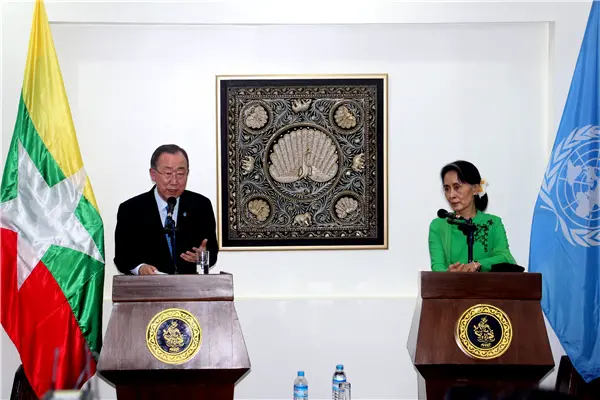Myanmar is again in global news headlines Wednesday as the country starts a landmark peace conference, dubbed the 21st Century Panglong Meeting, in reference to a historic gathering in 1947 that led to the country's independence from Britain.
The conference, attended by the government and 11 ethnic armed groups, is the most inclusive peace talks the country has ever seen since it slid into a long-running civil war some 60 years ago.
Generations of Myanmar national leaders have tried various means to resolve the ethnic issues at the heart of the protracted war, but such attempts failed to bring lasting peace.
Nowadays there is consensus in the Myanmar society that political dialogue is the only way forward to national reconciliation and peace.
The ruling National League for Democracy, led by Aung San Suu Kyi, has made national reconciliation a priority, and Aung San Suu Kyi herself said on various occasions that "without peace there can be no sustained development."
Despite a lack of official data on civil war casualties in Myanmar, it is estimated that armed conflicts claimed tens of thousands in the country in the past several decades.
And some 220,000 people are currently displaced by ongoing fighting in Kachin and Shan states and in the western state of Rakhine, according to UN figures released this week.
Continued armed conflicts also cost the national economy dearly, as the country, blessed with rich natural resources, is now one of the least developed nations in the world.
Reform measures introduced by the Myanmar government since 2011 have indeed provided powerful boost to national economy and according to the World Bank and the IMF, the Southeast Asian country is poised to become the world's fastest growing economy this year and remain in the high-flying club for the next few years.
However, Myanmar's hope for an economic takeoff may be dashed should the country continue to be burdened with constant armed conflicts.
The truce signed by the army and eight of the largest ethnic groups last year is in line with the aspiration for peace inside the country and beyond, and Wednesday's longer-than-expected attendee list indicates that the country is making progress toward the final goal of national reconciliation.
China, as a close neighbor and the largest trading partner of Myanmar, has made clear its intentions to play a constructive role in promoting Myanmar's peace process.
It is hoped that the various parties involved in Myanmar's peace process could grasp the opportunity of the ongoing peace conference, show utmost sincerity and choose a path that heals war wounds from the past and leads to a promising future.
(APD)
 简体中文
简体中文

